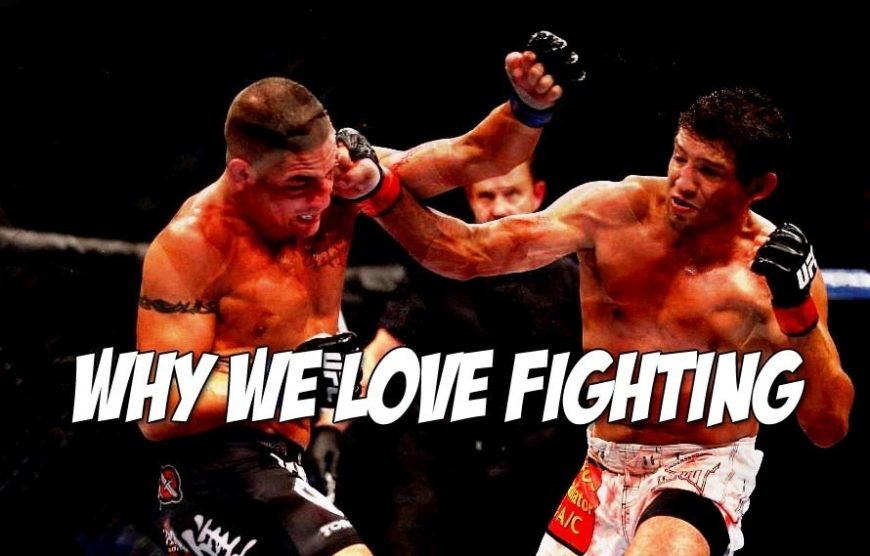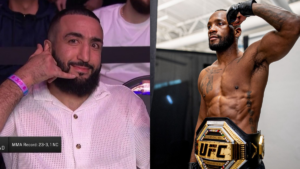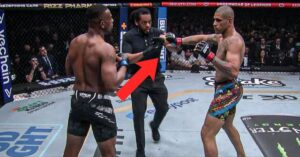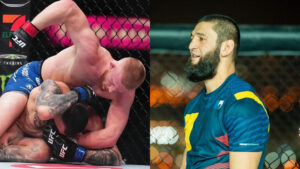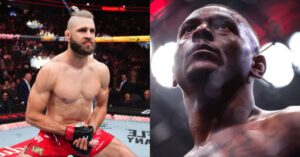The question can come at any time: in the shower, while tying your shoelaces. You’re rifling through a drawer looking for something; then you forget what. You could be at a traffic light when you start thinking about it: the light turned green a long time ago, and horns are being honked. Or you’re having a sit-down with your loved one, and she’s saying all kinds of important things: you’ve got to start caring about x, y, z. The two of you are at a crossroads, and there’s this big explanation why, but you can’t hear it. Your heart belongs to last Saturday, when in a split second you made the incredible transformation from mild-mannered and civilized to the Just Bleed guy, roaring with your fists clenched in the air, jugular veins pumped at max PSI, beer spilling everywhere, things falling off the table, pets scampering in fear as you filled the air with obscenities. And now you’re staring at the contents of a drawer—some receipts, a two-dollar bill, a couple of firecrackers—wondering how that happened to you and what it all means.
Maybe it comes to you during the spectacle itself, between rounds, say, as a dog-tired warrior—chest heaving, eyes swollen, face spidered with blood—tries to fight off the overwhelming urge to quit. You wonder, even as your heart is stirred by the fortitude this man has to get off his stool, if they shouldn’t just stop this one; and though the outcome isn’t in doubt—he’s getting savagely knocked out in about 30 seconds—you secretly wish they don’t. You get your wish; the docs let it go, and the next round starts. As the battered fighter lumbers forward, barely able to see, lurching his arms in hesitant quarter-circles that vaguely resemble punching, you are aware of two things: that they should have stopped it, and that you’re glad they didn’t. You try to justify your lust by the familiar platitudes to courage: miracles happen, men go out on their shields! And so on. Then, when a flying knee sends the fighter crashing against the cage, a crumpled trainwreck of unconscious bravery, limbs bent at career-ending angles and eyes crossed into oblivion, you become the intersection for a thousand different feelings. You wanted this. You had a hope in your heart, and well, sometimes dreams do come true. But what a dream—what a thing to hope for.
If you’re a fight fan, you’ve probably wondered why you’re drawn to the spectacle of human combat. We’ve all heard the standard answers: fighting is in our DNA, it’s a cathartic release for aggressive instincts kept on a short leash by civilization, or—one of my favorites—there are only two stories to tell, love and war: fighting tells one of them. And these are all satisfactory answers—good enough, anyway, to hit the spot when the question is directly asked, which it sometimes is. And you might respond in one of those ways, and make a pretty good case.
I won’t deny that those are good answers. I’ve appealed to them myself when trying to explain to others why I love MMA (and boxing). I’ve toyed with variations as well. For instance, I’ve argued that prizefighting is the ultimate affirmation of our success as a species. The evolutionary scientists tell us that 99% of all the species that ever lived on the planet have died out, so, by default, we’re the result of untold eons of struggling against the odds—first, through endless transformations in a chain of species that finally became homo sapiens; and then, as homo sapiens, the struggle against other species, the elements, the cold hard universe, and then of course, the struggle against ourselves. By staging a contest of violence between two human beings, we’re celebrating a significant part of what got us here. We affirm that all this struggling was necessary without vilifying it, while paying tribute to our civilized side by drawing up rules. Or something like that. But something always feels missing in these explanations: when I’m the interrogator, asking myself the question, I feel as though I haven’t covered all the bases.
So what’s missing? Well, let’s start at the beginning. There are two kinds of sports: team and individual, and their attractions in many ways overlap. Struggle, broadly speaking, is interesting. One team or person is trying to overcome the other, and this drives a basic interest. But what is offered by the respective types tells a fascinating psychological story. In team sports, responsibility is shared by the group, and not just for reasons of honor, but because the reasons for winning and losing can often be difficult to determine with rigorous precision.
To see these complications in action, take a typical situation in an NFL football game, where, with a few seconds left on the clock, one side can win the game with a successful field goal. We’re certainly justified in saying that, at the moment of the kick, one man decides the outcome of the game (with certain assumptions in place, such as a successful snap and placehold). If it’s a short one—30 yards, say—yet he misses it, we then blame the kicker for the loss. But we’re also justified in saying that the kicker didn’t create the circumstances which put the entire game on his shoulders, and therefore, blame is still shared by the group. Missed tackles, interceptions, miscommunications, random slips, bad referee calls and hundreds of other factors leading up to that moment played a part in producing that final picture where, with a few seconds on the clock, one man decides the outcome of the game.
Individual sports offer a very different picture of responsibility, and part of their allure is the removal of the complications of teamwork. In such sports there is—for the most part—no one to blame for a loss (or praise for a win, if you like) but the athlete himself. Yes, excuses of various kinds do arise: faulty coaching, lousy training camps, trouble with the spouse, jet lag, bad calls, and so on, are among those we hear. Even so, the picture is inarguably much clearer in individual sports, the performance always easier to evaluate. We have during the performance more information about the athletes in question than we have about those in team play, and in the end this always translates to perceptions of responsibility. A tennis player (in a singles match) cannot hide his bad performance or lesser skill behind another player. His career is ultimately on his shoulders and his shoulders alone. 80’s Tennis legend Ivan Lendl, to take one example, never won Wimbledon, and we don’t think the blame falls anywhere but on Lendl himself. By contrast, no one blames Dan Marino for failing to win a Super Bowl—he just never had the right team, or so the story goes.
Now, there are other reasons for liking individual sports, but the focus on responsibility—especially its burden on the lone competitor and our intimate access to that burden as observers—is a chief attraction for the fan. And in combat sports, this attraction is greatly amplified. To fully appreciate this amplification, and a rather bewitching special effect that it gives rise to, is to understand why you love, first and foremost of the individual-based sports, the combat variety.
Now, we separate boxing and MMA from other individual sports like tennis and golf primarily because, well, the former get to the point in a way the latter can’t. Ditching the arbitrary rules and oddball/extravagant equipment belonging to other contests, combat sports get closer to the primordial essence of things, the struggle between living beings. I say “closer” because of course no premeditated, artificially devised sport is authentically primordial. If that’s what you’re looking for, animal duels (natural and artificially induced) are easily found on Youtube, not to mention Bumfights and Worldstar for those who prefer human clashes with little to no rules. Nonetheless, a contest that permits one human being to bludgeon or otherwise violently submit another is one that can satisfy our Paleolithic urges well enough, whereas—in case you didn’t know—a tennis match comes nowhere near to doing this.
So this brings us back to square one, back to those explanations about fighting being in our DNA and so forth. I’ve said these aren’t quite satisfactory when trying to account for our attraction to combat sports, and the key to understanding why is to take another look at how responsibility plays out in them. What we’re really looking for in any MMA show or boxing match (or K-1, or whatever), I think, are those moments when a combatant seems possessed of something beyond himself, when he brings an aura or a feeling of—call it aforce—that is very hard to reduce to a matter of skill or sheer willpower. If this sounds like mysticism, well, we’re in the ballpark. But keep in mind that I’m not offering “possession” or “forces” as causal explanations for those sometimes extraordinary moments in combat sports. I’m not saying that there are ghosts in another dimension puppeteering the fighters. What I’m pointing to instead are those times where it appears the fighter has become “more than himself”, and the response we have to it as fans. In that sense, there might as well be supernatural forces at work: the feelings evoked in us are that strong.
There is no formula for these moments; they can happen unexpectedly, and in all kinds of ways. Sometimes it happens during a walkout: as the music starts pumping and the crowd roars, lights strobing the arena, and the camera follows the procession of handlers and confidants, you get your first good look at the fighter’s face, and it stops your heart in its tracks. Destiny is in the air.
But most often, the feeling happens in response to a performance or string of performances. Sometimes a heavy underdog defies all expectations and dominates, as BJ Penn did against Matt Hughes at UFC 46. For those who saw it live, what happened was difficult to process. Hughes was riding a phenomenal streak at the time and looked to be peaking as a fighter, having crushed the likes of Trigg, Newton and Sakurai in recent bouts. Physically there was no comparison: BJ with his elastic Gumby physique, Hughes a compressed mountain of power with an immovable neck and titanic jaw muscles. But none of that mattered. BJ became something else in that fight, and Matt had no chance. As BJ stood up from the choke-out victory, he looked as shocked as the rest of us.
Royce Gracie gave us this effect in the early UFC’s, arguably every time he fought. Dark and malnourished looking, his boney frame appeared as little more than a hanger for his gi. Did this guy even work out? There was something intense in his glare, maybe, but that can come from being hungry. And then there were those goofy little lunging front kicks, stomping giant steps or—whatever the hell they were—that he used while trying to get into grappling distance. Those were going to get him knocked out, you could just tell. But it never happened. Instead, this mystery man from Brazil enveloped his opponents like a gigantic virus, squeezing and smothering them to death, wrapping his legs wherever they would wrap, choking huge, powerful men unconscious from his back, or while surgically grafted to theirs. He would sift through their limbs like sand, like a natural rhythm, twisting like a comfortable wind, and overcome them. Royce wasn’t a person in these fights: he was a living demonstration of some secret, potent knowledge, the kind Kung-Fu magazines always promised. Royce was the carrier of this esoteric knowledge, and in doing so, became more a message delivery system than a person. It was only after we gotthe message that an aura came over him, and Royce the man emerged. But then the man was quickly converted into something supernatural. This man, we suspected, is unbeatable. In that sense, we got a double dose of the sacred feeling: Royce as deliverer of the truth, then Royce as invincible icon. Each of these was more than just a man.
And the feeling doesn’t come only in response to unfathomable streaks or godlike moments of skill. In fact, winning isn’t even required. Diego Sanchez lost to Gilbert Melendez at UFC 166, and nearly knocked Gilbert out while surviving an incomprehensible amount of facial punishment. Well, that’s what willpower is all about, right? That’s what a man can do with sheer determination! With the right training and cardio and refusal to surrender, a man can do these kinds of things, you’ll tell me, confidently sipping your whiskey. Well, okay, explain it however you like. But as I was watching that fight, I felt possessed, as though the force carrying Diego along was also carrying me. Diego became war in that fight. He was more than a man, more than just himself. And you understood this as you watched this fight unfold.
It would take a hundred pages to catalog these moments across the (still short) history of modern MMA alone—much more if we include all the combat sports—and everyone’s list will differ in some ways. I suspect that for many of us who still weep a solid inner tear for the incomparable majesty that Pride was in the early 2000’s feel that way about it because Pride was naturally conducive to these special moments. Now, to someone who argues, reductively, that the fights themselves are all that matter, there really is nothing to say. But for those of us who get it, Pride was the “whole over parts” phenomenon I’ve been talking about in regards to persons and fights, but at the level of the show itself. The show itself was greater than MMA. It wasn’t just a spectacle, either: that would reduce it to “good production” or sensory candy. And yes, there were odd things going on: a few worked fights, men in diapers, and things like that. But, among other intangibles, Pride delivered something that may never be reproduced in our lifetimes: this reverential silence as the fighters’ feet stormed across the canvas. Not all silences are alike—I learned that from watching Pride. The silence of two people isn’t the same as a silence of a full stadium. That’s what always delivered it for me. You could hear every step two men made in a sold out arena, and when the crowd finally did explode, you were transported with them to a dimension of the greater whole.
Is this mysticism? I’m not sure, but I’m sure this is what we want in MMA, and this is why we watch it. Yes, the phenomenon happens in other sports as well, but it’s a reduced version. The Roger Federers and Kobe Bryants of the world also do incomprehensible things, and the athletes themselves have no real explanations. “I was just on tonight. I couldn’t miss if I tried.”—that sort of thing. But those other sports don’t lead us into the primordial lake of fire like fighting does. Yes, Michael Schumacher defeats his fellow drivers in a way that makes them feel useless and childlike; Tiger Woods (when he was still Tiger Woods) crushed the other golfers, set himself apart in ways that seem hard to pin down, and so on.
But all those sports are, well… so arbitrary. Sports in general are pretty hokey when it comes down to it. “We’ll take this little ball here, and, uh, try to hit it. With this wooden stick. And then we’ll station men in a diamond formation, at spots called bases…and this game, we’ll divide it into nine innings, let’s call them, and now what happens is…” No. No, what I’m talking about, you can’t find it there, in games like that, no matter how difficult or rough they are. Because however civilized our combat sports may be, they still cut very much to the chase. Fighting is indeed in our DNA, just like Joe Rogan said. But the spectacle of violence isn’t the whole picture. We’re not just looking to see bloodshed. And if you say, “I love the skill, the strategy” and so on, that doesn’t complete the picture either. No, what we’re looking for, as fight fans, is the inexplicable phenomenon of men being seized by something that can’t be reduced to training or willpower or any of that stuff. In the greatest moments—the moments we live for as fans—combat sports gives us not men, but beings seized with destiny, transcendent figures who are no longer responsible for what happens in an expression of forces beyond our understanding.

